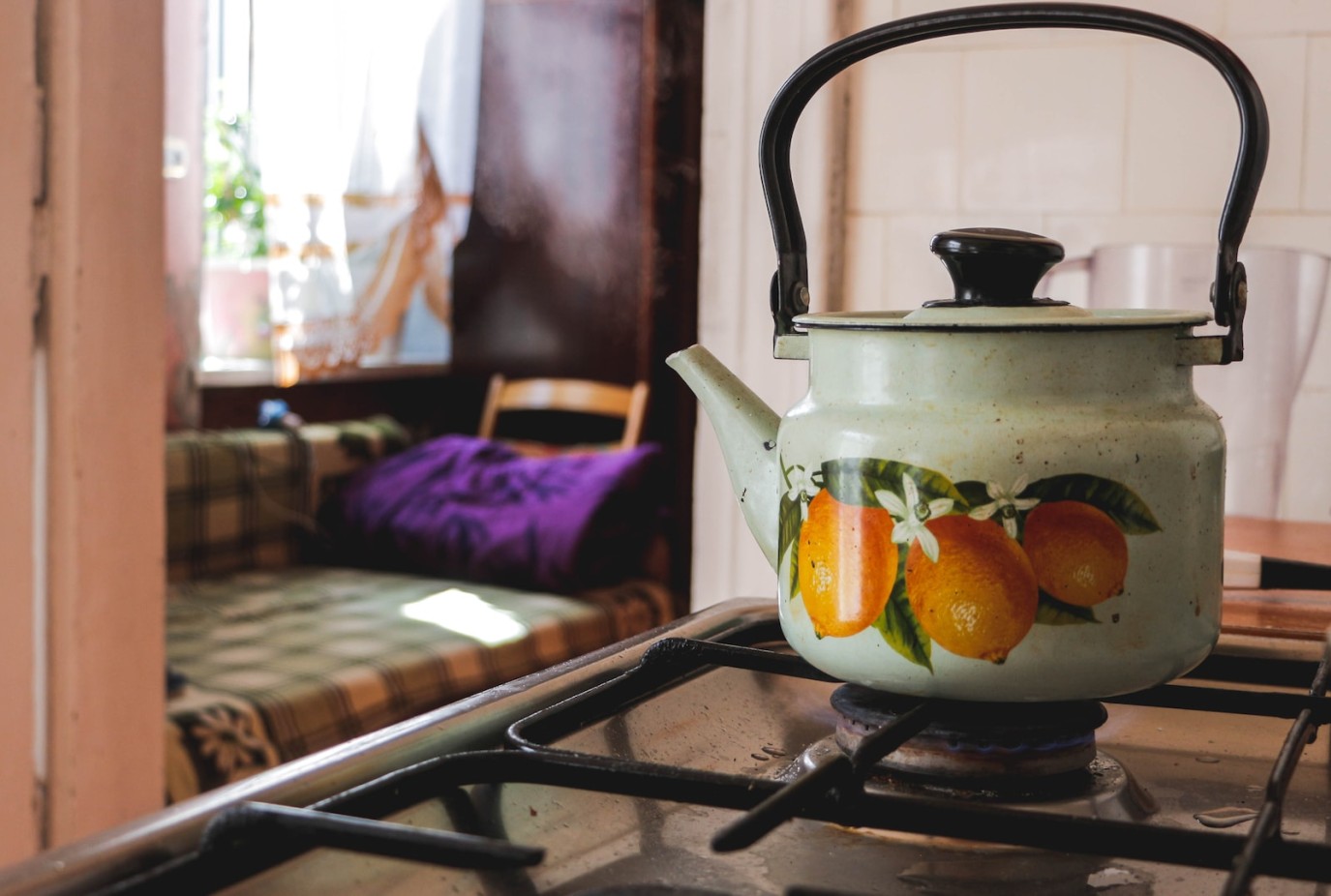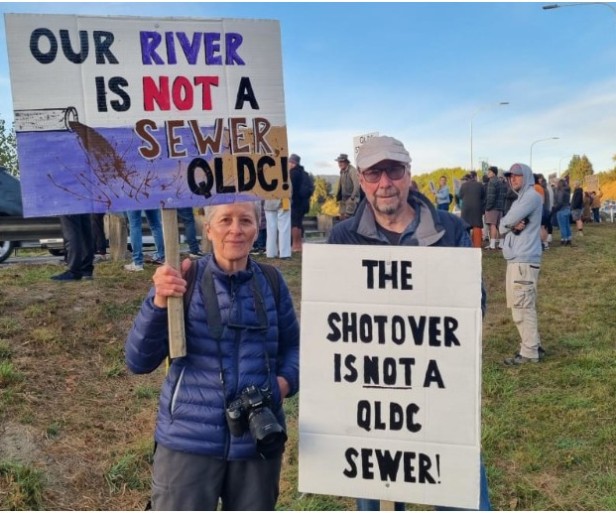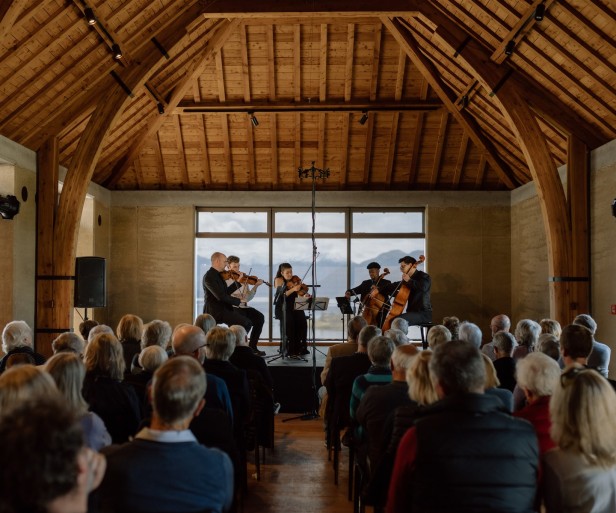Boil water notice continues

The boil water notice for many Queenstown and Frankton neighbourhoods issued yesterday by Queenstown Lakes District Council (QLDC) remains in place until further notice.
This was introduced after NPHS Southern confirmed cases of illness caused by the protozoa, cryptosporidium in areas serviced by the Queenstown water supply.
NPHS Southern has confirmed 15 cases as at midday today (19 September).
Areas where people should boil water:
- Queenstown town centre (north along Gorge Rd as far as and including Industrial Place)
- Queenstown Hill
- Frankton Rd and suburbs on the hill above Frankton Rd
- Fernhill and Sunshine Bay
- Frankton including Five Mile, Remarkables Park and Glenda Dr
- Quail Rise and Tucker Beach Rd
- Kelvin Heights
- Hanley’s Farm
The notice applies to residential and commercial properties (including accommodation providers) that are connected to a public supply in the locations identified above.
Unaffected areas (no need to boil water):
- Arrowtown
- Arthurs Point
- Lake Hayes Estate
- Shotover Country
- Upper Clutha; and
- any properties on a private supply (e.g. Jacks Point).
QLDC Property and Infrastructure General Manager Tony Avery says Council is continuing to test water supplies and engage with health authorities.
“NPHS Southern is leading the public health response and continuing to trace the source of these cases. It’s important to emphasise that whilst the number of confirmed cases is still relatively low, cryptosporidium is a nasty bug and anyone with related symptoms should seek advice from a medical professional,” he says.
“Whilst the confirmed source is not yet known, and there is no confirmed link to the local water supply, we’re keeping the boil water notice in place in line with advice from NPHS Southern and the drinking water regulator, Taumata Arowai.”
Council increased the frequency of its testing on Friday, 8 September following reports of people living in Fernhill feeling unwell. This monitoring tests for indicators of contamination via the presence of E.coli or total coliforms, and also checks residual chlorine levels.
"All results to date have been, and continue to be, normal.
"However, this testing did not specifically identify the presence or absence of cryptosporidium. Whilst there has been no result to date that indicates the local water supply has been compromised, as the supply at this location does not currently have a protozoa barrier as part of the treatment process this cannot be conclusively ruled out.
"Hence additional testing for crypto in the water supply has been in place following the confirmed cases. Beginning yesterday (18 September) we will be testing the raw water source and reservoir daily. Results take approximately three days and we will update the community as soon as we’re able."
Avery says more information was being shared with the community to help individuals and businesses minimise the effects of the boil water notice.
"Council’s environmental team are working closely with food operators and the Ministry of Primary Industries on specific measures and advice for the local hospitality sector."
Boiling water kills any microorganisms that could be present. In the locations outlined above people are advised to boil all their drinking water for at least one minute (or use bottled water) for the following uses:
- Drinking water – including cold beverages, ice-making and coffee machines
- Food preparation – including washing uncooked foods such as salad, vegetables, and fruit
- Preparing baby formula
- Washing food utensils
- Brushing teeth
- Pets
"We will continue to engage with NPHS Southern and Taumata Arowai, and will issue further advice as and when the situation changes," Avery adds.
Dr Emma Sherwood, Southern Medical Officer of Health says the most common symptoms of cryptosporidium infection are "smelly, watery diarrhoea and stomach cramps".
"If you live or work in the Queenstown area or have visited there in the last 12 days and are experiencing these symptoms, please call your GP and inform them," she says.
Cryptosporidium (also called ‘crypto’) is a parasite found in the gut of infected people and animals. It is passed on in the faeces (poos) of infected humans and animals. People become infected when they swallow the parasites, usually in contaminated water.
Cryptosporidium can also be spread by hands contaminated with faeces during toilet use or nappy changing. From hands it can spread to surfaces, toys, food and water. It can also spread by contact with infected animals, or in shared water such as swimming pools.
Te Whatu Ora is working alongside Queenstown Lakes District Council to establish the source of infection.
More information can be found on the Taumata Arowai website: https://www.taumataarowai.govt.nz/for-communities/emergencies/
For information about cryptosporidiosis, including symptoms and treatment, visit https://healthed.govt.nz/products/cryptosporidium-and-giardia
General information about how to stop the spread of cryptosporidium and what to do if you have symptoms provided by NPHS Southern:
How to help stop the spread of infection
The best thing you and your whānau can do to stop the spread of cryptosporidium (crypto) infection is to practise good hand hygiene. This means scrubbing your hands with soap and water for at least 20 seconds and drying them thoroughly with a clean towel:
- After using the bathroom, changing a diaper, or helping others use the bathroom
- Before eating or cooking
- After handling an animal
- After gardening, even if you used gloves
- When caring for someone with diarrhoea
Other ways to help stop the spread of cryptosporidium infection are:
- Stay home or keep young children home when you or they have an active case of diarrhoea
- Don’t drink untreated water
- Shower before using recreational swimming facilities to wash away any potential Cryptosporidium organisms on your body.
- Don’t swallow pool water.
- Wash all produce before eating it. Peeling the skins will also reduce your risk.
- Take young children at the pool to the bathroom frequently.
- Change children’s diapers often.
- Stay clear of the water if you or your children have diarrhoea. Stay out of the water for a full two weeks after the diarrhoea subsides.
What to do if you have symptoms
The most common symptom of crypto infection is smelly, watery diarrhoea and stomach cramps. If you live in the Queenstown area or have visited there in the last 12 days and are experiencing these symptoms, please call your GP and inform them.









